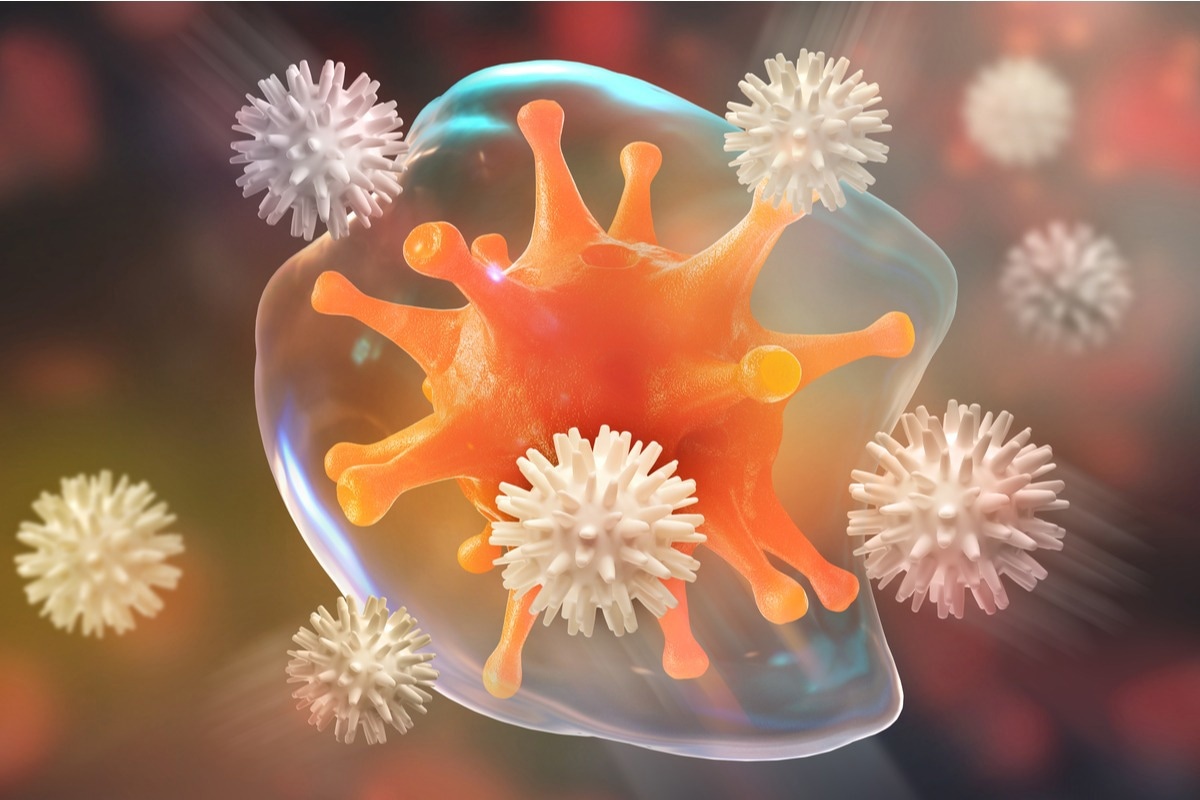Introduction
What is the immune system?
How does the immune system protect the body?
How is the immune system affected?
What is an adaptive immune system?
How can you boost immune fitness?
References
Further reading
An immune system that can adapt to a wide range of situations by creating, maintaining, and controlling an adequate immune response is referred to as having immunological fitness. This article will explore the ways to boost immune fitness.
What is the immune system?
The immune system is made up of a complex web of organs, cells, and proteins that all work together to keep the body healthy, fight illness, and speed up the healing process after injury.
Innate and adaptive immunity are the two basic components of the immune system. When protective barriers like skin and mucous membranes are compromised, innate or "nonspecific" immunity is first line of defense against germs or pathogens.
 Image Credit: Yurchanka Siarhei/Shutterstock
Image Credit: Yurchanka Siarhei/Shutterstock
How does the immune system protect the body?
To defend against external threats like bacteria and viruses as well as internal threats like cancer, the immune system utilizes a variety of strategies, which are known as innate and acquired.
The white blood cells, including B and T lymphocytes, are also referred as memory cells, as they retain track of every germ that the immune system has ever fought off. This means that if the microbe re-enters the body, it can identify and eliminate it fast before it has a chance to proliferate and make the person ill.
The body’s enzymes and immune cells called phagocytes (e.g., neutrophils and macrophages) work in concert to eliminate invading infections because of innate immunity.
Antibody and phagocytic cells are better able to identify and kill pathogens and damaged cells because of plasma proteins. Antimicrobial proteins in the mucous membranes of the oral and nasal cavities eliminate microorganisms before they have a chance to enter the airways and cause illnesses.
There are so many distinct viruses or strains of the same virus that may cause flu and the common cold that they must be battled repeatedly. Having a cold or flu does not make someone immune to other viruses.
 Image Credit: peterschreiber.media/Shutterstock
Image Credit: peterschreiber.media/Shutterstock
How is the immune system affected?
Immune function can be affected by both physiological and psychological stressors. Innate and acquired immune systems are both influenced by physical activity.
Advancing age results in the steady decline of the immune system. As a result, the body's immune system is less able to fight off infections and form long-term memory of them. Asthma, chronic obstructive pulmonary disease (COPD), diffuse interstitial illness, and respiratory infections in the elderly are all linked to a lack of oxygen in the bloodstream.
Viral envelopes and virus-infected cells may be destroyed by cytokines (interleukin [IL]) like interferon. Natural killer (NK) cells are a kind of lymphocyte that can rapidly identify and destroy a malignant or diseased cell.
They do this by puncturing the target cell's membrane and injecting cytolytic granules into it, which causes the cell to die. A few hours after exposure to a pathogen, the innate immune response can eradicate it from the body.
This response is advantageous because it can detect and react to a wide spectrum of bacteria. Because it lacks "memory" and cannot begin a "targeted" immune response that leads to long-term protection, it is not ideal for long-term protection.

 Related: How does Stress Affect Your Immune System?
Related: How does Stress Affect Your Immune System?
What is an adaptive immune system?
The adaptive immune system, sometimes termed as the acquired immune system, eliminates infections by limiting their proliferation.
Many infections elude the innate immune system, activating the adaptive immune system. This reaction "targets" the infection-causing bacteria and includes T and B lymphocytes. Despite being slower than the innate response, the adaptive response is more accurate and successful in resolving infections.
The adaptive response causes many once-in-a-lifetime diseases. Because T and B cells "remember" infections, they may survive forever. They may also induce a quicker and particular immune response, should the infection reappear.
Vaccination prevents illness by "educating" the adaptive immune system so it can respond quickly if exposed to the infectious agent in the future. Both innate and adaptive immune systems may operate synergistically in the total immune response.
Adaptive immune cells produce cytokines and other messenger chemicals that govern innate immune cell activity. Both arms of the immune system are engaged in inflammation.
How can you boost immune fitness?
Exercise changes both innate and acquired immune systems. The neuroimmune–endocrine system mediates changes in the amount and function of circulating leukocytes. Acute exercise may increase stress hormones, inflammatory cytokines, oxidative stress, and T lymphocytes, NK cells, neutrophils, and macrophages.
Regular exercise reduces inflammatory cytokines and oxidative stress and boosts immune cell resting function. Strenuous exercise raises muscle inflammation and produces delayed-onset muscle injury.
Exercise-induced mechanical stress promotes the release of immunoregulatory proteins, including myokines. Skeletal muscle cells release myokines without causing inflammation. Exercise-induced fat loss reduces inflammatory adipokines. Changes in metabolic organ cytokine release alter circulating leukocytes and immunological activity in other organs.
Immune function varies in response to acute and chronic exercise and affects physiological and pathological states such weariness, exercise performance, and infection risk. Diet affects these immune response elements. In addition to key nutrients, phytochemicals may reduce immune suppression and inflammation after intense exercise.
Exercise has a dramatic influence on the immune system and aids older persons, those with cancer, obesity, inflammatory illness, diabetes, and persistent viral infections (e.g., HIV).
Healthy adults with appropriate PA levels maintain optimum immune function and avoid immunological declines with age and obesity. Avoiding sedentary behaviour and fulfilling PA standards via regular exercise may help preserve immunological health in most people.
 Image Credit: marekuliasz/Shutterstock
Image Credit: marekuliasz/Shutterstock
References
- Aoi, W. and Naito, Y. (2018) ‘Immune Function, Nutrition, and Exercise’, Nutrition and Enhanced Sports Performance: Muscle Building, Endurance, and Strength, pp. 83–95. doi.org/10.1016/B978-0-12-813922-6.00007-2.
- Baker, F.L. and Simpson, R.J. (2021) ‘Exercise to Support Optimal Immune Function’, ACSM’s Health and Fitness Journal, 25(1), pp. 5–8. doi.org/10.1249/FIT.0000000000000628.
- Lindberg, S. (2022) Does Exercise Boost Immunity?, Healthline. Available at: https://www.healthline.com/nutrition/does-exercise-boost-immune-system (Accessed: 4 July 2022).
Further Reading